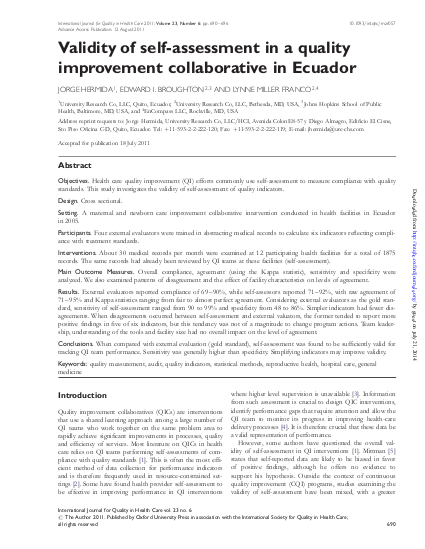
Quality improvement collaboratives (QICs) are interventions that use a shared learning approach among a large number of QI teams who work together on the same problem area to rapidly achieve significant improvements in processes, quality and efficiency of services. Most literature on QICs in health care relies on QI teams performing self-assessments of compliance with quality standards. This is often the most efficient method of data collection for performance indicators and is therefore frequently used in resource-constrained settings. Some have found health provider self-assessment to be effective in improving performance in QI interventions where higher level supervision is unavailable. Information from such assessment is crucial to design QIC interventions, identify performance gaps that require attention and allow the QI team to monitor its progress in improving health-care delivery processes. It is therefore crucial that these data be a valid representation of performance.